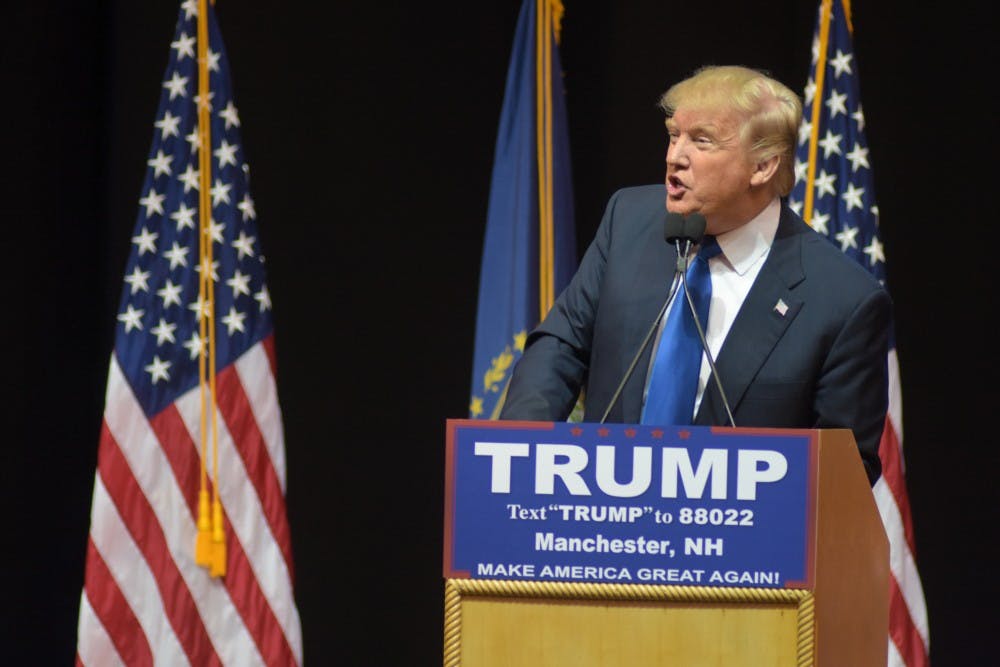Prominent philosophers, political scientists and journalists from across the country convened in Claudia Cohen Hall on Friday for a conference to discuss philosophical issues tied to the Trump presidency.
The forum, called “Trump, Philosophy, and American Politics: Philosophical Implications of the 45th Presidency,” discussed issues ranging from the effectiveness of the Electoral College system to the role of major media outlets in a growing “post-factual” environment.
Most shockingly, David Livingstone Smith, a professor of philosophy at the University of New England, and Kenneth A. Taylor, a professor of philosophy at Stanford University, both drew comparisons between Trump’s election and Adolf Hitler’s rise to power in 1933.
Smith associated psychoanalyst Roger Money-Kyrle’s theories on Hitler’s rhetoric with Trump’s rhetoric throughout his election campaign, in that Trump spread nationwide depression and paranoia, followed by nationalistic, exclusionary policies. Smith also said Trump’s rhetoric — which he called “Trumpism” — ignites even darker ideologies of bigotry and intolerance amongst the American public.
Taylor brought the room to silence when he opened by saying, “We may be living in a 1933 moment,” referring to Hitler’s rise to power in Germany that year. He then went on to ask the audience, “What would you have done in 1933?”
Taylor said Trump’s presidency is illegitimate because the "flawed" Electoral College model allowed him to win the election despite losing the popular vote, and that he is extremely concerned by Trump’s “delegitimizing” acts against government institutions and the press.
Taylor concluded by saying the nation “needs all hands on deck” in order to oppose the administration through civic protest and pointed political engagement because Trump's actions have signaled the end of "ordinary oppositional politics" characteristic of democracy.
Michael Weisberg, a philosophy professor and one of the organizers of the conference, said in opening remarks that the idea for the conference started in light of a “stunning” election, and he cited the concern and uncertainty felt across campus and the nation.
“This is a discussion that belongs to us all,” Weisberg said, adding he hopes the forum can act as an educational platform that would allow the community to reflect on recent political events in order to make change in the future.
Jon Ehrens, a local WHYY radio host and producer of “Radio Times,” moderated the event and fielded questions from the audience.
Penn assistant professor of philosophy, Quayshawn Spencer, examined how mainstream media outlets so poorly predicted the outcome of the election, as many major polls projected Hillary Clinton’s victory. Following Spencer, Rutgers University professor of philosophy, Elizabeth Camp, examined “Trumpian” rhetoric and its effects on perceptions of minority groups.









